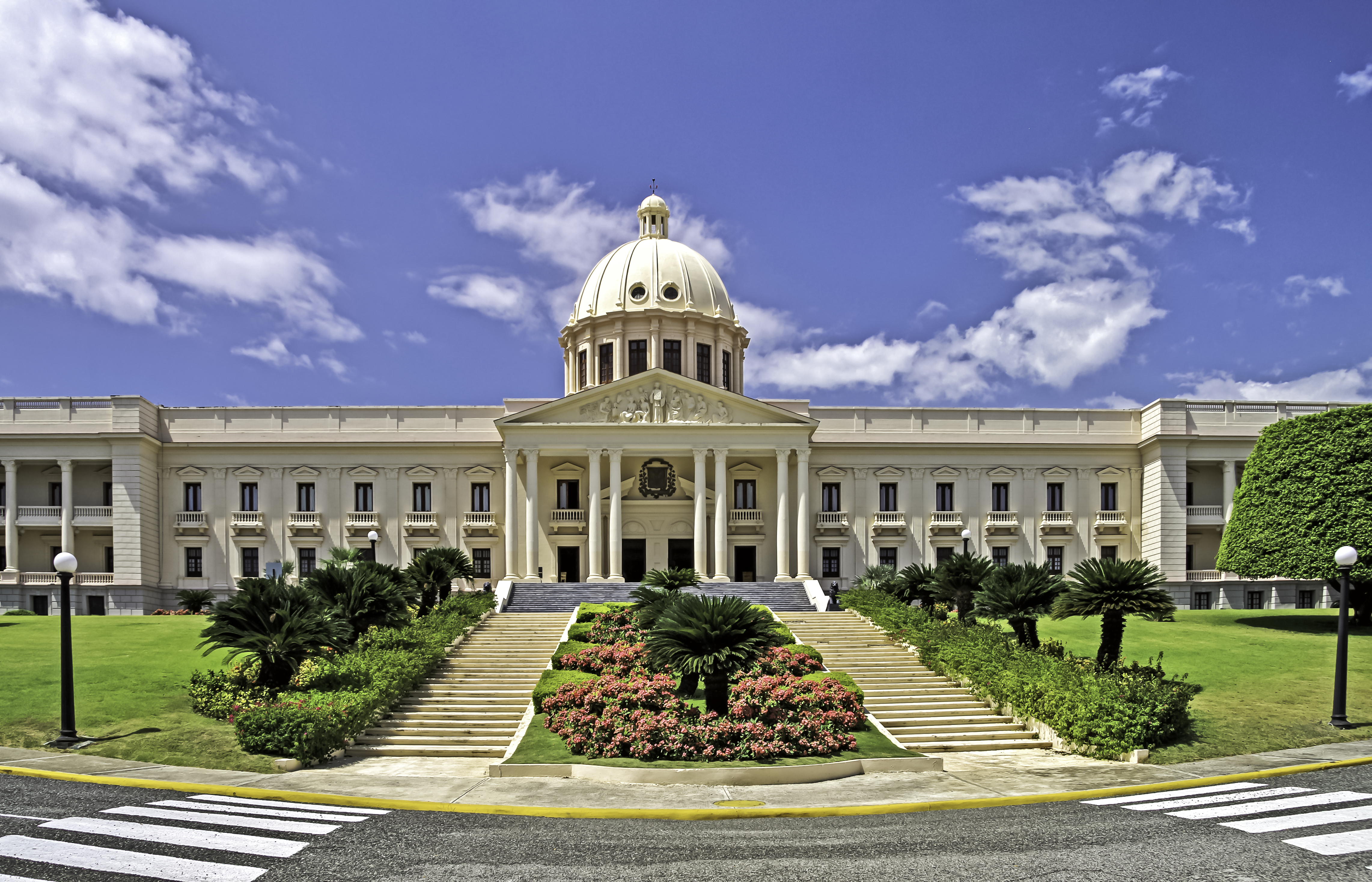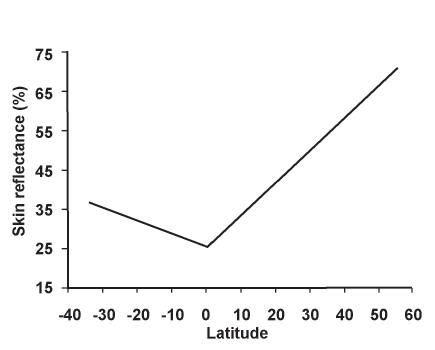|
Ulises Francisco Espaillat
Ulises Francisco Espaillat Quiñones (February 9, 1823 – April 25, 1878) was a 19th-century Dominican Republic liberal statesman and author. He served as president of the Dominican Republic from April 29, 1876, to October 5, 1876. Espaillat Province is named after him. Early life Ulises Francisco Espaillat Quiñones was born on 9 February 1823 in Santiago, officially known from 1822 to 1844 as ''Saint-Yague'', into a wealthy family of French, Canarian, Aragonese and Genovese descent; he was the only son of Pedro Ramón Espaillat Velilla (Santiago, 1796−idem, 1882) and María Petronila Quiñones Tavares (1804−1874). His father was the tenth and junior child of Francisco Espaillat y Virol —a Frenchman native to Masclat that settled in Santiago in 1758 in an epoch where one-third of the population was of French origin— and Petronila Velilla Sánchez —whose father was born in Aragon, and her maternal grandfather was from the Canary Islands and a great-grandfathe ... [...More Info...] [...Related Items...] OR: [Wikipedia] [Google] [Baidu] |
List Of Presidents Of The Dominican Republic
Since independence in 1844, the Dominican Republic has counted 54 people in the President of the Dominican Republic, presidential office, whether constitutional, provisional, or interim, divided into 66 periods of government. Likewise, there are also periods in which the head of state role has been exercised by collegiate bodies (such as triumvirates, Military junta, military Junta (governing body), juntas, or Council of state, councils of state). First Republic (1844–1861) Central Government Junta Source: The Central Government Junta was the first body of a collegiate and provisional nature to exercise the executive, legislative and judicial powers of the nascent Dominican state. It was provisionally constituted on 28 February 1844 and subsequently formalized on 1 March 1844; it went through two Coup d'état, coups d'état, and finally dissolved with the proclamation of the first Constitution of the Dominican Republic, Constitution on 6 November 1844. Presidents ... [...More Info...] [...Related Items...] OR: [Wikipedia] [Google] [Baidu] |
Light Skin
Light skin is a human skin color that has a low level of eumelanin pigmentation as an adaptation to environments of low Ultraviolet, UV radiation. Due to migrations of people in recent centuries, light-skinned populations today are found all over the world. Light skin is most commonly found amongst the native populations of Europe, East Asia, West Asia, Central Asia, South Asia, Siberia, and North Africa as measured through skin reflectance. People with light skin pigmentation are often referred to as "White people, white" although these usages can be ambiguous in some countries where they are used to refer specifically to certain ethnic groups or populations. Humans with light skin pigmentation have skin with low amounts of eumelanin, and possess fewer melanosomes than humans with dark skin pigmentation. Light skin provides better absorption qualities of ultraviolet radiation, which helps the body to synthesize higher amounts of vitamin D for bodily processes such as calcium de ... [...More Info...] [...Related Items...] OR: [Wikipedia] [Google] [Baidu] |
Ibid
Ibid. or ib. is an abbreviation for the Latin word '' ibīdem'', meaning , commonly used in an endnote, footnote, bibliography citation, or scholarly reference to refer to the source cited in the preceding note or list item. This is similar to '' idem'', literally meaning , abbreviated ''id.'', which is commonly used in legal citation. ''Ibid.'' may also be used in the Chicago (name-date) system for in-text references where there has been a close previous citation from the same source material. The previous reference should be immediately visible, e.g. within the same paragraph or page. Some academic publishers now prefer that ''ibid.'' not be italicised, as it is a commonly found term. Usage differs from style or citation guides as to whether ibid should be suffixed with a full stop. For example, Oxford Standard for Citation of Legal Authorities omits full stops and does not capitalise, while ''The Economist's'' style guide uses a lower case starting letter with ending full s ... [...More Info...] [...Related Items...] OR: [Wikipedia] [Google] [Baidu] |
Cousin Marriage
A cousin marriage is a marriage where the spouses are cousins (i.e. people with common grandparents or people who share other fairly recent ancestors). The practice was common in earlier times and continues to be common in some societies today. In some jurisdictions such marriages are prohibited due to concerns about inbreeding. Worldwide, more than 10% of marriages are between first or second cousins. Cousin marriage is an important topic in anthropology and alliance theory. In some cultures and communities, cousin marriages are considered ideal and are actively encouraged and expected; in others, they are seen as incestuous and are subject to social stigma and taboo. Other societies may take a neutral view of the practice, neither encouraging nor condemning it, though it is usually not considered the norm. Cousin marriage was historically practiced by indigenous cultures in Indigenous Australians, Australia, Indigenous peoples of the Americas#North America, North America, Indig ... [...More Info...] [...Related Items...] OR: [Wikipedia] [Google] [Baidu] |
Aristocracy (class)
The aristocracy (''from Greek'' ''ἀριστοκρατία'' ''aristokratía'', "rule of the best"; ''Latin: aristocratia'') is historically associated with a "hereditary" or a "ruling" social class. In many states, the aristocracy included the upper class with hereditary rank and titles. They are usually below only the monarch of a country or nation in its social hierarchy. History In some, such as ancient Greece, ancient Rome, or India, aristocratic status came from belonging to a military class. It has also been common, notably in African and Oriental societies, for aristocrats to belong to priestly dynasties. Aristocratic status can involve feudal or legal privileges. Plato’s '' Symposium'' offers a glimpse into the intellectual and cultural life of aristocracy in ancient Athens. The dialogue takes place at a banquet attended by prominent Athenian aristocrats, illustrating how the elite not only wielded political and military power but also shaped philosophic ... [...More Info...] [...Related Items...] OR: [Wikipedia] [Google] [Baidu] |
Oligarchy
Oligarchy (; ) is a form of government in which power rests with a small number of people. Members of this group, called oligarchs, generally hold usually hard, but sometimes soft power through nobility, fame, wealth, or education; or through corporate, religious, political, or military control. Throughout history, power structures considered to be oligarchies have often been viewed as coercive, relying on public obedience or oppression to exist. Aristotle pioneered the use of the term as meaning rule by the rich, contrasting it with aristocracy, arguing that oligarchy was a corruption of aristocracy. Types Minority rule The consolidation of power by a dominant minority, whether religious or ethnic, can be considered a form of oligarchy. Examples include South Africa during apartheid, Liberia under Americo-Liberians, the Sultanate of Zanzibar, and Rhodesia. In these cases, oligarchic rule was often tied to the legacy of colonialism. In the early 20th ... [...More Info...] [...Related Items...] OR: [Wikipedia] [Google] [Baidu] |
Most Recent Common Ancestor
A most recent common ancestor (MRCA), also known as a last common ancestor (LCA), is the most recent individual from which all organisms of a set are inferred to have descended. The most recent common ancestor of a higher taxon is generally assumed to have been a species. The term is also used in reference to the ancestry of groups of genes (haplotypes) rather than organisms. The ancestry of a set of individuals can sometimes be determined by referring to an established pedigree, although this may refer only to patrilineal or matrilineal lines for sexually-reproducing organisms with two parents, four grandparents, etc. However, in general, it is impossible to identify the exact MRCA of a large set of individuals, but an estimate of the time at which the MRCA lived can often be given. Such ''time to most recent common ancestor'' (''TMRCA'') estimates can be given based on DNA test results and established mutation rates as practiced in genetic genealogy, or by reference to a non- ... [...More Info...] [...Related Items...] OR: [Wikipedia] [Google] [Baidu] |
Ulises Francisco Espaillat Metro Station
Ulises Francisco Espaillat is a Santo Domingo Metro station on Line 2. It was open on 1 April 2013 as part of the inaugural section of Line 2 between María Montez and Eduardo Brito. The station is located between Francisco Gregorio Billini and Pedro Mir. This is an underground station built below Avenida John F. Kennedy. It is named in honor of Ulises Francisco Espaillat Ulises Francisco Espaillat Quiñones (February 9, 1823 – April 25, 1878) was a 19th-century Dominican Republic liberal statesman and author. He served as president of the Dominican Republic from April 29, 1876, to October 5, 1876. Espaillat .... References {{Authority control Santo Domingo Metro stations Railway stations in the Dominican Republic opened in 2013 ... [...More Info...] [...Related Items...] OR: [Wikipedia] [Google] [Baidu] |
Liberalism
Liberalism is a Political philosophy, political and moral philosophy based on the Individual rights, rights of the individual, liberty, consent of the governed, political equality, the right to private property, and equality before the law. Liberals espouse various and often mutually conflicting views depending on their understanding of these principles but generally support private property, market economies, individual rights (including civil rights and human rights), liberal democracy, secularism, rule of law, Economic freedom, economic and political freedom, freedom of speech, freedom of the press, freedom of assembly, and freedom of religion.Generally support: * * * * * * *constitutional government and privacy rights * Liberalism is frequently cited as the dominant ideology of modern history.Wolfe, p. 23. Liberalism became a distinct Political movement, movement in the Age of Enlightenment, gaining popularity among Western world, Western philosophers and economists. L ... [...More Info...] [...Related Items...] OR: [Wikipedia] [Google] [Baidu] |
Gregorio Luperón
Gregorio Luperón (September 8, 1839 – May 21, 1897) was a Dominican revolutionary, military general, businessman, liberal politician, Freemasonry, freemason, and statesman who was one of the leaders in the Dominican Restoration War. Luperón was an active member of the Triumvirate, Triunvirato of 1866, becoming the President of the Provincial Government in Puerto Plata, Dominican Republic, San Felipe de Puerto Plata, and after the successful coup against Cesareo Guillermo, he became the 20th President of the Dominican Republic. Born in Puerto Plata, Dominican Republic, Puerto Plata in 1839, Luperón spent his early years as merchant, where he learned French to access a merchant's library. His revolutionary career began in 1857, when fought in the Cibaeña Revolution against Buenaventura Báez. Luperón opposed the reincorporation of Santo Domingo into the Spanish kingdom and rose to prominence in the Dominican Restoration War. He became the commander-in-chief of the due to his ... [...More Info...] [...Related Items...] OR: [Wikipedia] [Google] [Baidu] |
Listín Diario
''Listín Diario'' (Lit. ''Small Daily List'') is one of the leading newspapers in the Dominican Republic, and the oldest still being published. History ''Listín Diario'' was founded as ''Listín Diario Marítimo'' on 1 August 1889 by Arturo Pellerano Alfau and Julian Atiles, two merchants who endeavored to inform the general public of the arrival and departure of merchant ships into Dominican ports. Soon after what began as a single page became a broadsheet newspaper, printed out of the Pellerano & Atiles offices in the Colonial Zone of Santo Domingo. The Venezuelan writer and poet Andrés Mata was its editor for a time. Pellerano Alfau served as editor and publisher of the newspaper until his death in the early 1930s. During his tenure, ''Listín Diario'' championed some of the era's more significant regional issues. It covered the Cuban War of Independence, from 1894-98, during which time it regularly published letters from Dominican General Máximo Gómez, who fought on ... [...More Info...] [...Related Items...] OR: [Wikipedia] [Google] [Baidu] |





